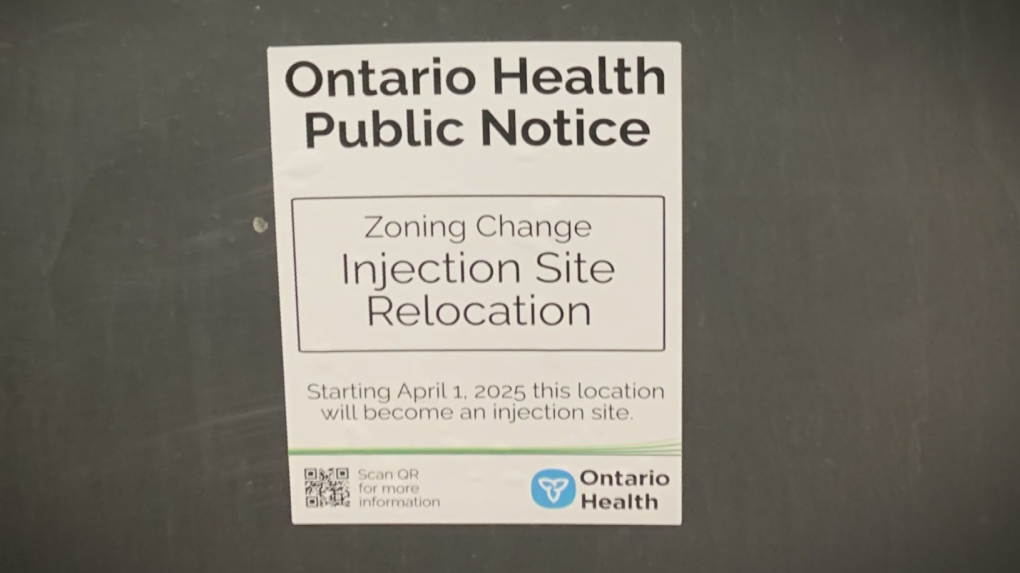CTS advocates react to auditor general's report slamming CTS shutdowns
The Ontario government is moving forward with its plan to shut down 10 safe consumption sites next year, even though the auditor general is questioning both the process and decision to do it.
Premier Doug Ford has promised to replace CTS sites with Homelessness and Addiction Recovery Treatment, or HART, hubs. His government has also prohibited sites within 200 metres of a school or daycare, as well as the opening of any new CTS locations.
The auditor general’s report, which was released on Tuesday, called Ford’s abstinence-based treatment model an outdated strategy that fails to “meet the challenging and changing nature of the opioid crisis in Ontario.” It also suggested the decision to shutter CTS sites near schools or childcare centres was made without proper planning, analysis or public consultations.
The report prompted some strong reactions at Queen’s Park.
NDP Leader Marit Stiles said Ford’s plan involved “no consideration for the rules, for accountability.”
Ontario Health Minister Silvia Jones, however, defended her party’s decisions.
“Swapping a dirty needle for a clean one is not a pathway out and does not give people hope,” she stated.
Two of the CTS locations, set to close on April 1, are in Kitchener and Guelph.
Advocates in both communities call the auditor general’s report troubling, but not surprising.
“The government knows there will be harms, including death, including increased emergency room visits, including additional strain on paramedics – and they’ve proceeded anyway,” said Michael Parkinson of the Waterloo Drug Action Team. “Many of us are just absolutely disturbed by a government that would do that.”
The report supports the argument that CTS sites can save lives.
“In 2022/23, the 10 sites that will be closed had successfully prevented over 1,500 overdoses,” it said.
The evidence for Ford’s proposed HART hubs is unclear.
“The ministry’s investment of $378 for the HART hubs was decided upon without a needs-based assessment,” the report said.
In Guelph, advocates are dreading the change.
“We expect that these closures will have devastating impacts to the community from a health and safety perspective,” explained Melissa Kwiatowski, CEO of Guelph CHC.
She feels the province should be adding treatment services, not taking them away.
“We need all the tools to address this public health safety crisis,” Kwiatowski said Wednesday. “We welcome the HART hub investments. We also need harm reduction. It’s not an either/or situation. It’s both.”
Fake posters have started popping up in communities across the province. The signs, which claim to be from “Ontario Health,” falsely declare CTS locations will be turned into “injection sites” as of April 1.
 A fake Ontario Health sign.
A fake Ontario Health sign.
“I think they’re trying to communicate that once the consumption service goes, then the entire city is more at risk of becoming an open consumption site because those people, they don’t have anywhere to go,” Parkinson suggested.
Another potential problem, outlined in the auditor general’s report, was the province’s lack of a comprehensive plan for hospitals, detailing how they will handle the expected increase in overdose calls once CTS sites shut down.
CTVNews.ca Top Stories

Canada closes 'flagpoling' loophole for temporary visa holders
Temporary residents of Canada will no longer be able to utilise the flagpoling process to initiate work or study permits, following a ban from the Canada Border Services Agency.
Kieran Culkin, 'Shōgun,' Ali Wong win at Golden Globes
The Golden Globes, which host Nikki Glaser introduced as “Ozempic's biggest night,” got underway Sunday with awards spread around for “Emilia Pérez," “A Real Pain," and “Conclave," as Hollywood's thus-far unpredictable awards season remained hard to pin in the early going.
Driver who entered Canada 'without stopping' at B.C. border crossing arrested: police
A man who illegally blew through the Canada-U.S. border crossing in Surrey, B.C., Sunday morning has been arrested, according to authorities.
'Absolutely devastating': Southern Manitoba golf course clubhouse burns for second time in 4 years
A golf course clubhouse in Morden, Man. went up in flames Sunday for the second time in less than four years, and mere days after its reopening from the previous fire was celebrated.
Thousands are without power due to winter storm hitting Newfoundland and Labrador
Massive waves slammed Newfoundland and Labrador's coastline on Sunday, as a powerful winter storm left thousands without power.
Man responsible for New Year's truck attack previously visited New Orleans, Ontario, Egypt: FBI
The man responsible for the truck attack in New Orleans on New Year's Day that killed 14 people visited the city twice before and recorded video of the French Quarter with hands-free glasses, an FBI official said Sunday.
The Vivienne, star of 'RuPaul's Drag Race UK', dies at 32
British reality show 'RuPaul's Drag Race UK' winner James Lee Williams, aged 32, popularly known as The Vivienne, has died.
Driving into Manhattan? That'll cost you, as new congestion toll starts Sunday
New York’s new toll for drivers entering the center of Manhattan debuted Sunday, meaning many people will pay US$9 to access its busiest part in peak hours.
WATCH Woman critically injured in explosive Ottawa crash caught on camera
Dashcam footage sent to CTV News shows a vehicle travelling at a high rate of speed in the wrong direction before striking and damaging a hydro pole.

































